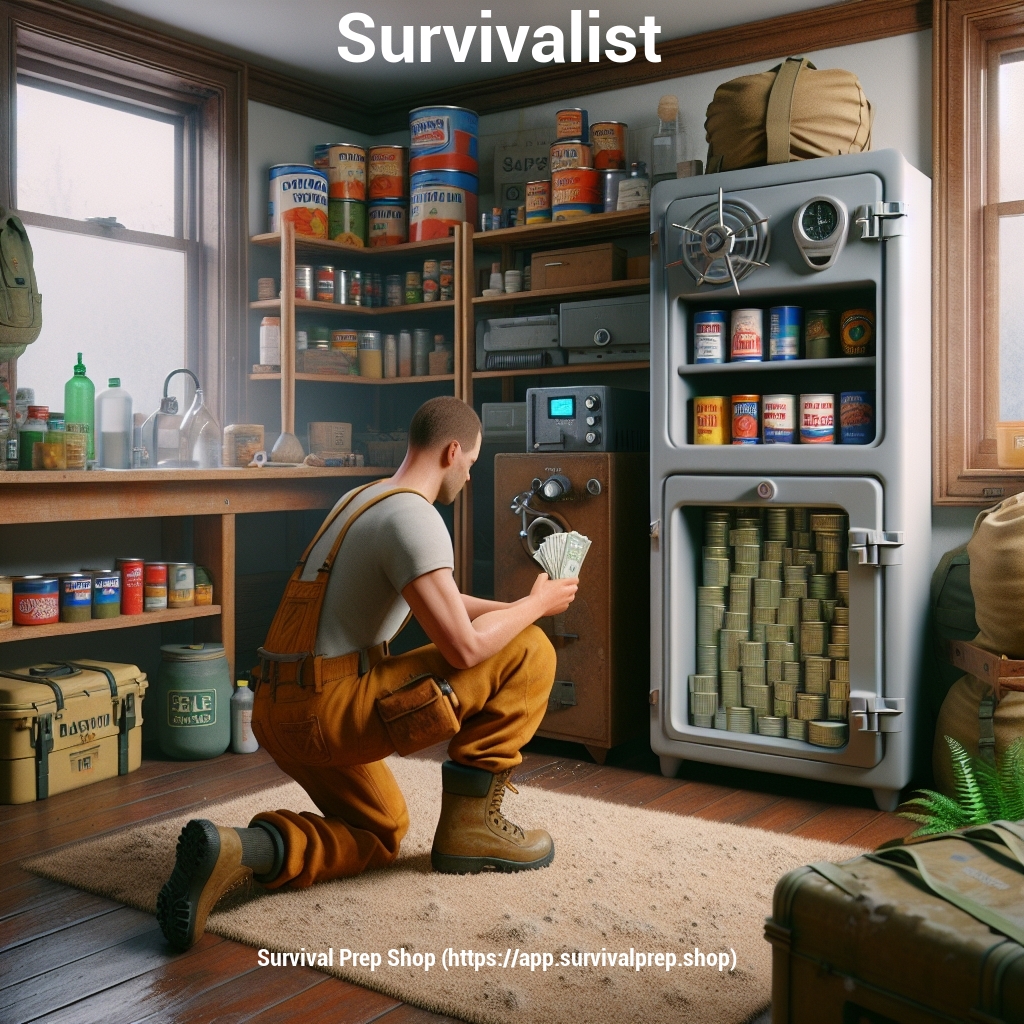
Hello everyone, and welcome to the Survival Prep Shop. I’m TK and welcome you to our latest exploration of survival tactics. I’m here to share insights that I’ve gathered personally along the way — let’s grow our preparedness journey together. Today, we delve into the essential tactics of managing your money during unpredictable times, especially when societal structures may break down.
When life is going on in a business as usual fashion, you’re probably not too concerned about having your money kept in a bank. However, when the SHTF, a bank might not be the safest place to keep it. Most people think about the convenience of keeping money in a bank and they don’t dwell on the risks. But that doesn’t mean there aren’t risks – and plenty of them. If you look at what happened in Greece and other countries in the not too distant past, you’ll see what happened to people when the banking system failed.
The banks simply shut down and limited how much of their own money people could have. People were left scrambling to figure out how to buy necessities, how to take care of themselves, and those who’d traveled outside the country struggled with having the means to return home since they couldn’t access their money. When your money is in a bank, you’re not the one who decides whether or not you’ll always have access to it. And if the government needs it, it can simply take it. When a bank gets in trouble, the money in accounts can be seized.
The only person who can make sure you and your family get taken care of is you. And always have money on hand to tide you over for months at a time, even if you leave some funds in the banking system.
If you have your money in a bank account, it can be taken. If you try and store it in a safety deposit box, it can also be taken. Just because it’s in a bank doesn’t mean you’ll have access to it or that you’ll always have ownership of it when you need it. If your bank were to shut down for several days – or worse, for months – how could you get by? In a SHTF situation, it’s always best to have your money where you can get to it when you need it.
You can use a safe at home to protect your money, but you want to make sure you don’t make it easily visible or accessible to anyone but you. Never buy a grab and carry safe. If you can snatch it up and go, so can a thief. Instead, use a safe that you can permanently fix to a spot. Have more than one safe because you never want to keep all your eggs in one basket.
Divide your money up between two or three safes for the best bet. Some survivalists use a cheaper safe and leave it where it can be seen. They’ll put a little bit of money in that safe so that if a thief does break in, he thinks he’s taken everything and he won’t search for more.
You can also place your money in airtight, waterproof containers and bury it. But only do this if you’ll be able to get to it when you need it. You can bury some on your immediate property and some on a bug out location.
Besides a hidden safe, there are several other places you can hide your money. You can hide money inside your walls by hiding it inside a vent. You can tuck money away in your attic inside of old toys or tucked inside the hollowed out center of an old hardback book that you stack with a few other books.
When life on the grid is suddenly disrupted, life as you know it will be thrown into chaos. Without electricity, the world will be a different place. In a SHTF situation, the way that currency is handled and the way money changes hands during transactions is going to cease. Without electricity and normal banking, your debit card and your credit cards are going to be virtually worthless. Not having any cash won’t be an option – not if you want to survive.
You need to have cash on hand so that you can take care of the needs that you’ll have. But how you store that cash, how much of it you have and what types of bill denominations to have will all matter. Most people have the mindset that bigger is better. They believe that storing rolls of hundreds of fifty dollar bills will see them through any SHTF situation. But you have to think the opposite of a normal day-to-day buying and selling transaction.
In normal life, you can easily use a larger bill. But in a SHTF situation, having larger bills could be of almost no value to you. Without normal ways to bank, you and those who do business
— Don’t forget to check out our YouTube channel — Click here —
